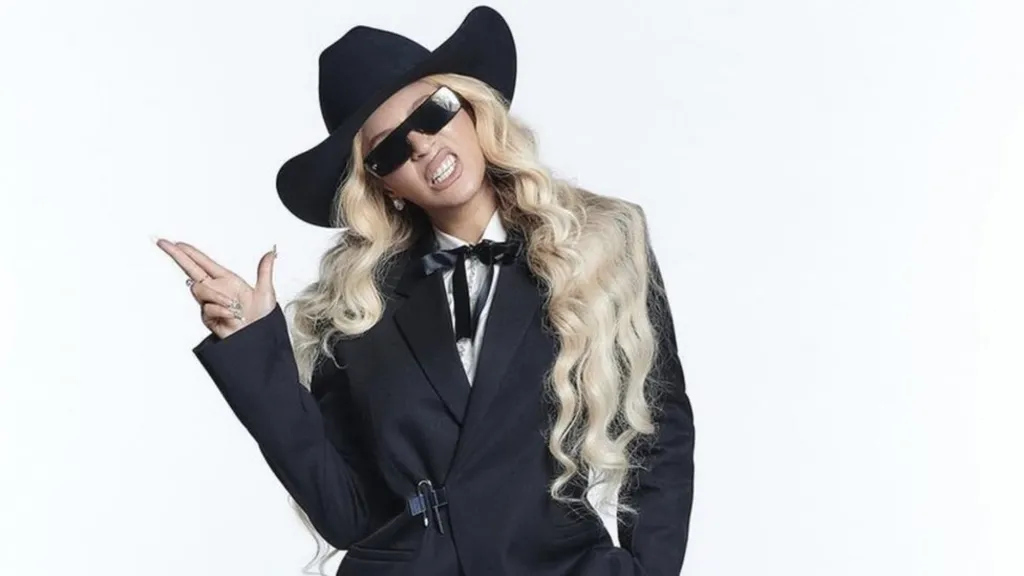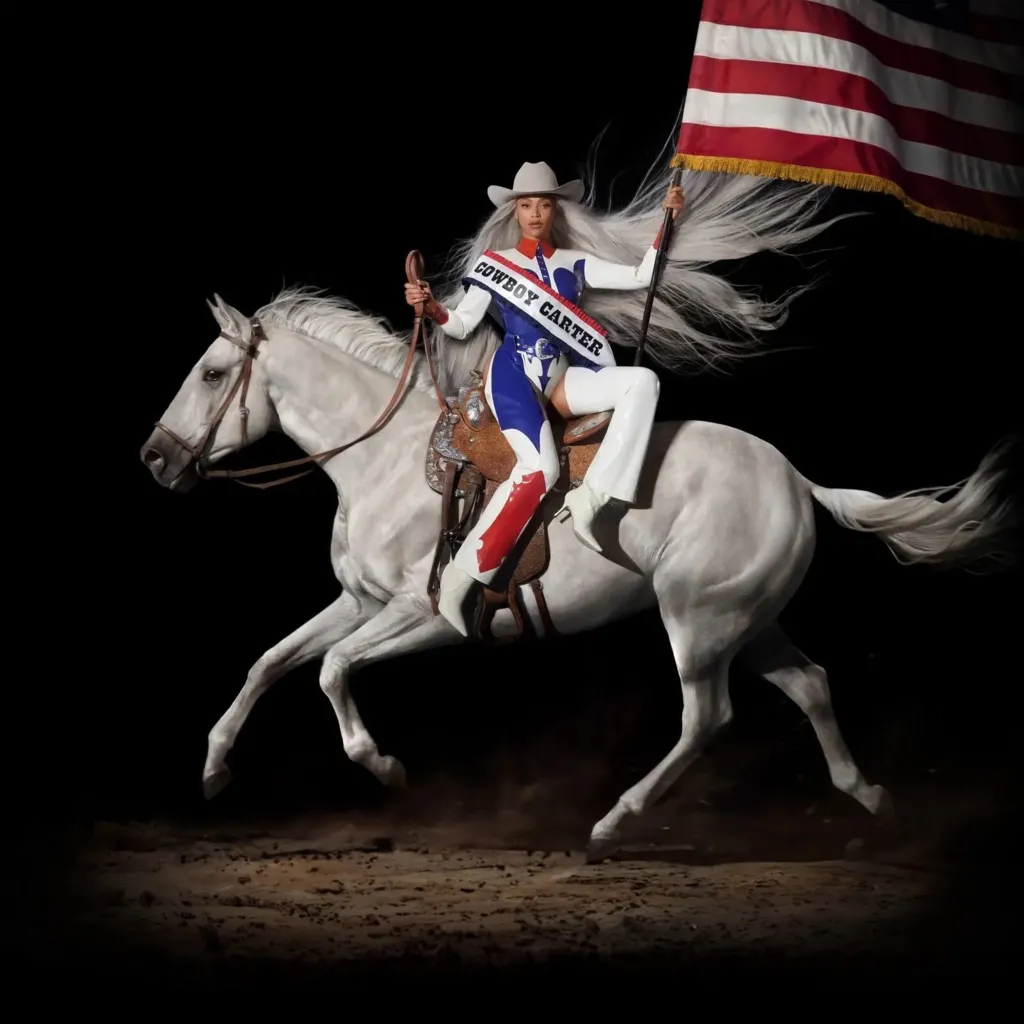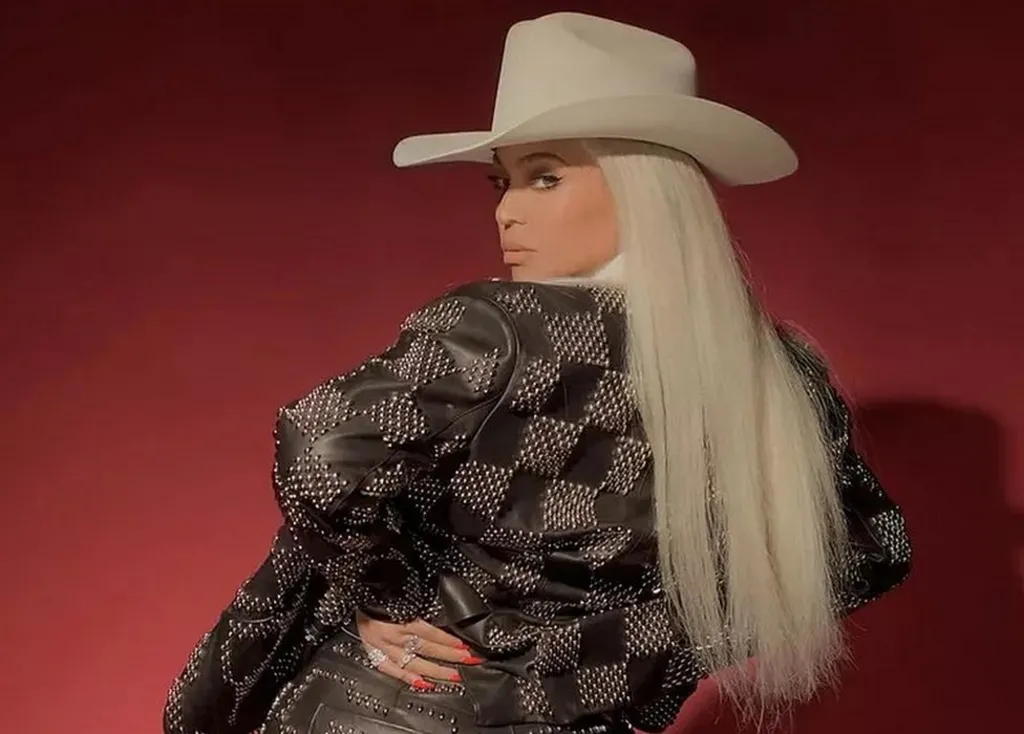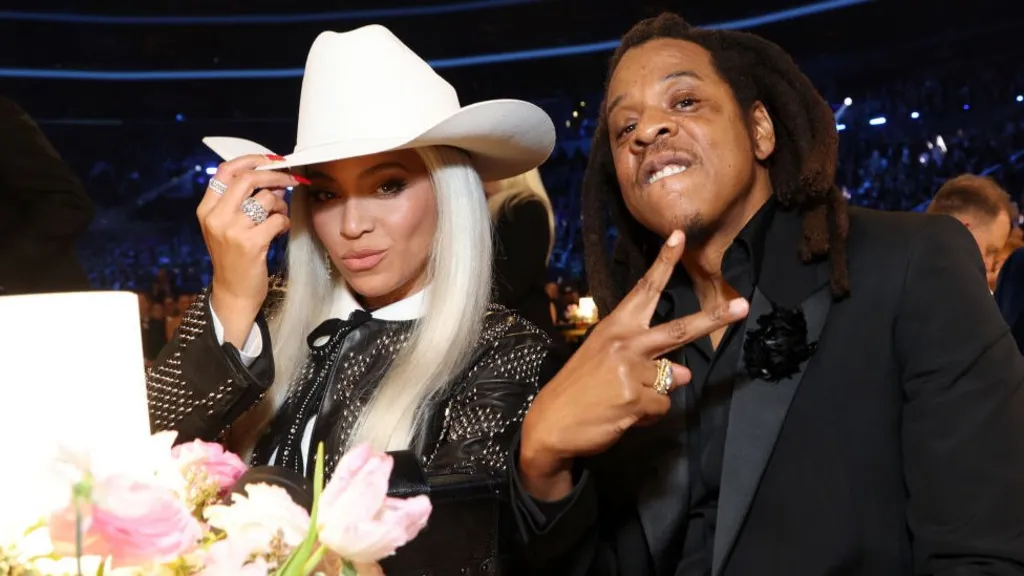When Beyoncé turned up to the Grammys in a cowboy hat, we should have known that something was afoot.
A week later, she officially announced her country era - dropping two surprise singles in the middle of the Super Bowl.
One of them, the banjo-riffic Texas Hold 'Em, became the star's biggest hit in years. In the UK, it was number one for four weeks - her longest-ever spell at the top.
Nashville reacted with a shrug. Country radio only gave the song modest airplay, even as millions of streams propelled it to the top of Billboard's country chart.
This was pretty much what Beyoncé expected.
As a Texan, country music is her birth right but, in an Instagram post last week, she wrote that her new album, Cowboy Carter, was "born out of an experience that I had years ago where I did not feel welcomed".
This was likely a reference to her appearance at the 2016 Country Music Awards, where she performed her song Daddy Lessons with The Chicks (then known as the Dixie Chicks).
Both performers were deemed unwelcome - The Chicks had faced a backlash in the US after criticising former President George W Bush during the Iraq War; while Beyoncé's vocal support of Black Lives Matter had upset many on the American right.
Their performance faced a barrage of criticism - and racism - online. Natalie Maines, lead singer of The Chicks, later told the New York Times that the way Beyoncé was treated after the show was "disgusting."
In her Instagram post, Beyoncé said the experience prompted her to take "a deeper dive into the history of country".
But, she warned: "This ain't a country album. This is a Beyoncé album."
Too right, it is.
Over 27 interlocking songs and interludes, Cowboy Carter throws a lasso around country's sonic signifiers, and spins them into something unique: Appalachian fiddles are spliced with pop melodies, and lap steel guitars underscore rap verses with speaker-crushing sub bass.
That the genres overlap so seamlessly is evidence of Beyoncé's technical mastery, but also of her central thesis: That Nashville's marginalisation of outsiders, and black women in particular, weakens the music in the long run.
'Hussy with the good hair'
If this all sounds dry and academic, don't be put off. Cowboy Carter is a blast, with hooky, memorable songs that are theatrical, mournful, playful, lovestruck, whimsical and carnal - often at the same time.
It opens with an acknowledgement that Beyoncé's recent albums have become socio-political talking points, while asking fans to drown out the chatter.
"There's a lot of talking going on, while I sing my song," she sings over a psychedelic wash of sitar. "Can you hear me? Do you hear me."
The dramatic opener segues into a faithful cover of The Beatles' Blackbird - chosen not just for its timeless melody, but for its inspiration: A group of nine black students, known as the Little Rock Nine, who faced discrimination after enrolling in an all-white high school in Arkansas, 1957.
It's never stated explicitly, but the parallels between their struggle and the segregation of country music are duly noted.
Elsewhere, Protector is a gentle, touching ode to motherhood, introduced by a voice note of Beyoncé's daughter Rumi pleading, "Mum can I hear the lullaby please?"
Daughter is much darker - a visceral account of a bathroom stall fight, where Beyoncé leaves another woman "black and blue" on the "filthy floors".
"If you cross me, I'm just like my father / I am colder than Titanic water," she warns, before the song cedes way to the 18th Century aria, Caro Mio Ben.
Intriguingly, this song follows a cover of Dolly Parton's Jolene - a country blockbuster inspired by a real-life brush with infidelity.
arton herself introduces the track, noting the parallels between her lyrics and "that hussy with the good hair" - a reference to Beyoncé's 2016 song Sorry, in which she called out "Becky with the good hair" as the (alleged) mistress of her husband, Jay-Z.
"No matter the genre, heartache hits the same," Parton observes.
Other highlights include the luscious, understated spiritual Just For Fun; and YaYa, a goodtime hoedown that somehow interpolates both the Beach Boys' Good Vibrations and Nancy Sinatra's These Boots Are Made For Walkin'.
The use of acoustic instruments (the album is predominantly scored by acoustic guitar, bass and piano) gives the album a more organic, accessible feel than Beyonce's more recent records.
And while Beyoncé delivers all the obvious country signifiers - rhinestones and whiskey, coyotes and snakes, denim and John Wayne - she also finds room for her usual preoccupations: Love, sex, and the general awesomeness of Beyoncé herself.
(Your mileage with those more self-congratulatory lyrics will vary depending on your pre-existing views on Beyoncé.)
She even gets a dig in at the Grammys, where she's consistently been overlooked in the major categories, despite becoming one of the defining artists of her generation.
"Album of the year, I ain't win, I ain't stung by them," she shrugs on the magnificently-titled Sweet ★ Honey ★ Buckiin', before promising to "come back" and shake up the industry all over again.
This new album is part of that plan, an immaculate country-pop record that proves her adaptability and mastery, regardless of genre.
It forms the second part of a trilogy that Beyoncé conceived during the Covid-19 lockdown.
The first, Renaissance, explored the forgotten black and queer roots of house music. Critics more steeped in the nuances of America's folk tradition will undoubtedly discover extra layers to Cowboy Carter than this early review can cover.
Even the artwork makes that clear. The sleeve shows Beyoncé riding side-saddle on a horse that's been identified as a Lipizzaner - whose coat turns from black to white over its lifespan. A meta-commentary, perhaps, on the gradual whitewashing of country music.
And while those ideas aren't hard-baked into the lyrics, the very fact that Beyoncé is playing in the country sandbox is the statement: This music should be for everyone, gatekeepers be damned.





